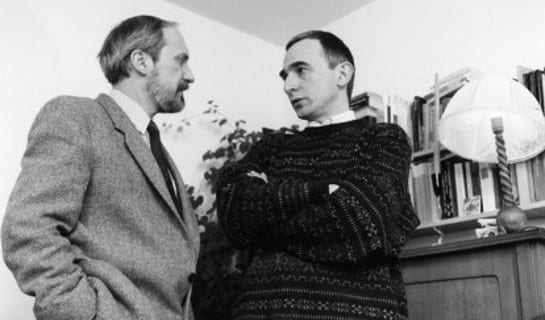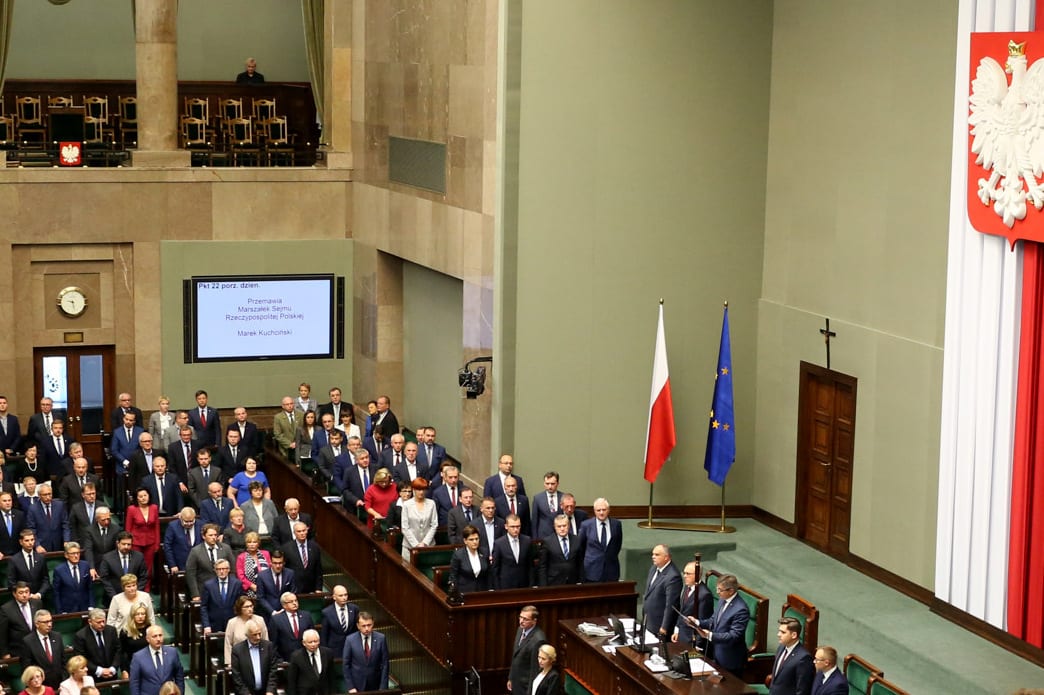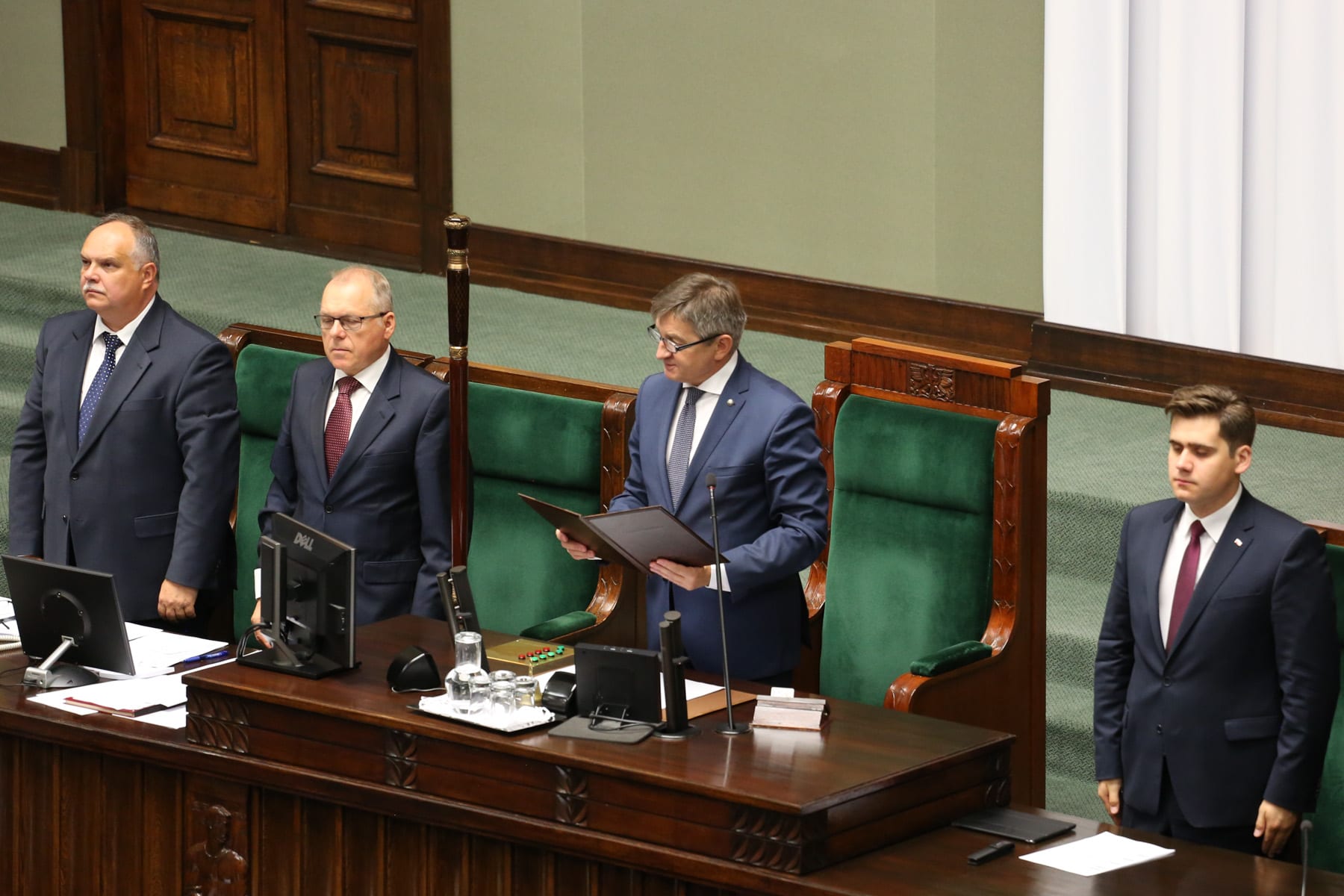Forty years ago, on September 23, the Workers' Defense Committee was founded. It was created as an opposition to the repressions of the communist authorities against workers from Radom and Ursus. Its main goal was to provide legal, financial and medical aid to persecuted workers and their families.
In September 1976, Antoni Macierewicz and Piotr Naimski, with the support of Jan Józef Lipski and Jacek Kuroń, finally convinced a larger group of people to form the Committee. The founding members of KOR were young people, intellectuals who had prepared for this movement with many meetings and discussions: Jerzy Andrzejewski, Stanisław Barańczak, Ludwik Cohn, Jacek Kuroń, Edward Lipiński, Jan Józef Lipski, Antoni Macierewicz, Piotr Naimski, Antoni Pajdak, Józef Rybicki, Aniela Steinsbergowa, Adam Szczypiorski, Father Jan Zieja, and Wojciech Ziembiński. As Piotr Naimski said, they were guided by the idea that jIf this communist system is not overthrown, an independent Poland will not be created. The KOR demanded that the PRL authorities grant amnesty to those convicted of participating in the June 1976 demonstrations, admit the repressed to work, disclose the full extent of the repression, punish those guilty of violating the law against demonstrators, and appoint a parliamentary commission to investigate and publicly disclose violations of the law by the authorities in connection with the above events. The KOR supported the persecuted and their families. It provided them with legal, financial, and medical aid. In the publication "...to be of service with all one's life... The Unknown History of the Workers' Defense Committee," Antoni Macierewicz recalls: A lot of energy was consumed by routine, everyday activities, such as meetings with lawyers, learning about the progress of the trials, obtaining new addresses of repressed workers. We assumed that we would help in a discreet way - I won't say secret, because that's not the point, but discreet. The point was to create a sluice between the political circles openly declaring themselves as the opposition and the aid campaign itself. [...]
The communist authorities persecuted KOR activists; people were prevented from attending court hearings, fired from their jobs, interned, and beaten for their help. These repressions were met with international protest by the intelligentsia and politicians.
October 1979, Warsaw, Poland. Hunger strike by members of the Workers' Defense Committee in the Holy Cross church, front from left: Antoni Macierewicz, Adam Michnik, priest Stanisław Małkowski, Jacek Kuroń, Kazimierz Woycicki, back: Konrad Bieliński, Mariusz Wilk, Kazimierz Janusz. Photo: Janusz Krzyżewski/ Ośrodek KARTA
Below: Antoni Macierewicz (currently minister of national defense) and Piotr Naimski (secretary of state at the KPRM)
Today, on the 40th anniversary of the KOR, the Polish Parliament adopted a resolution expressing its gratitude to the founders and activists of the Committee and to all Poles who supported it.
- Today, for many Poles - both for those who remember the communist reality and for the generation born in the Third Republic of Poland - The KOR constitutes a beautiful page in the history of Polish aspirations for independence and liberation from Soviet domination - wrote the resolution.


![Paüdziernik 1979, Warszawa, Polska Glodowka czlonkow Komitetu Obrony Robotnikow w kosciele sw. Krzyza, z przodu od lewej: Antoni Macierewicz, Adam Michnik, ksiadz Stanislaw Malkowski ( MALKOWSKI ), Jacek Kuron ( KURON ), Kazimierz Woycicki ( WOYCICKI ), z ty?u siedzL: Konrad Bielinski ( BIELINSKI ), Mariusz Wilk, Kazimierz Janusz. Fot. Janusz Krzyzewski ( KRZYZEWSKI ) / Oúrodek KARTA [PRL, KOR, Komitet Obrony Robotnikow, opozycja, dysydenci, organizacje polityczne, nurt niepodleglosciowy, kosciol, ksieza, protest glodowy] SLOWA KLUCZOWE: SYTUACYJNE PRAWA CZLOWIEKA PRL KATOLICY LATA 70](https://marekkuchcinski.pl/wp-content/uploads/2016/09/z11943451q.jpg)



